Highlighting the Wadsworth Institutional Grant Program
Alyson Matheus de Souza
Miniatures in Perspective: An Anthropological Study on the Patrimonialization of Alasitas and the Intersection of Religion and Nation in Bolivia
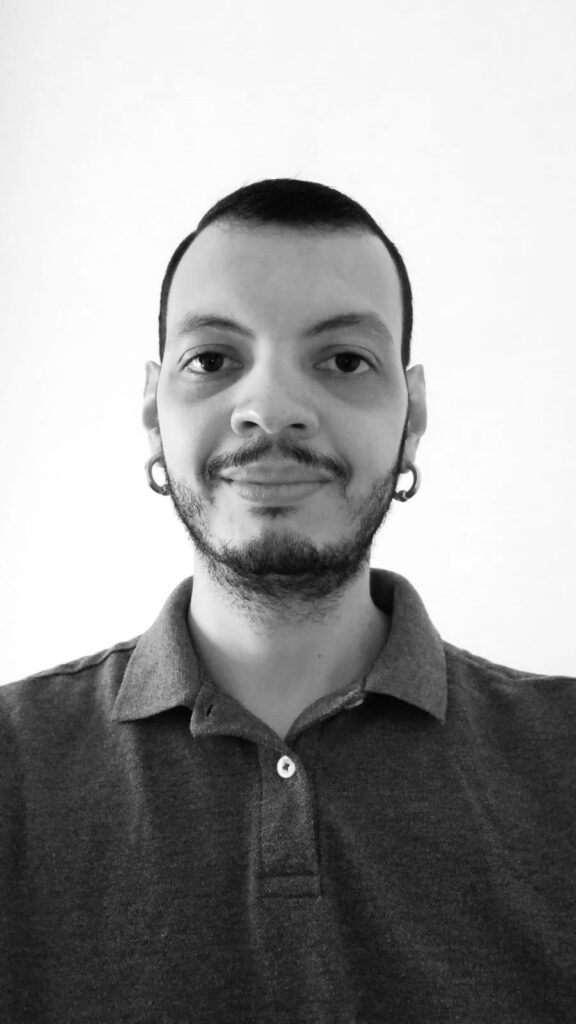
This project analyzes the intersection of heritage, religion, and nation in Bolivia through the study of material objects known as alasitas. The central research question is: How do processes involved in the patrimonialization of alasitas contribute to debates surrounding religion and nation in Bolivia following the New Constitution established in 2009? To address this question, the study will explore dimensions of heritage focused around alasitas in relation to religious events and the project of establishing a plurinational nation. Alasitas are miniatures that represent the desires and dreams of Bolivians in the context of contemporary urban life, ranging from material goods to intangible elements such as love, health, fertility, abundance, and prosperity. They are commercialized and ritualized during the Feria de las Alasitas (La Paz, Bolivia), they are featured in exhibitions at two Bolivian museums and were declared part of UNESCO’s Intangible Cultural Heritage of Humanity in 2017. This project draws on discussions within the fields of the Anthropology of Materialities, Heritage and Museums, and Religion, with a focus on Material Religion. Ultimately, this research seeks to contribute to the study of material culture and materialities in anthropology; to inform connections between Catholicism and indigenous religions through a material approach to religion; and to advance the analysis of patrimonialization and musealization processes involving traditional knowledge and practices of indigenous peoples, which gain political significance when they are recognized as cultural heritage.
Arthur Pereira Imbassahy
Making the Invisible Visible: Ontological Transformations and Political Alliances in Kokama Worldview
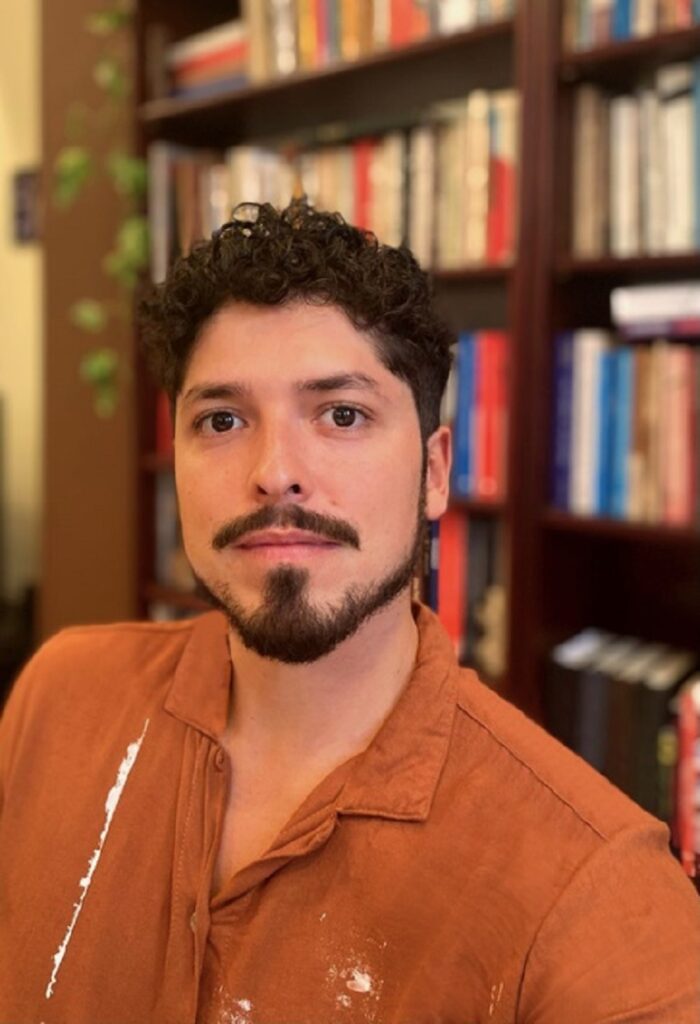
This research addresses reconfigurations of nature, culture, and the supernatural in Kukama cosmology, political alliances, and the frictions between indigenous and non-indigenous peoples in the Peruvian Amazon. Through fieldwork centered in the Nauta region of Loreto, Peru, I aim to understand how people who identify as Kukama gain visibility for themselves and for the superhuman beings with whom they share worlds by fighting for the recognition and protection of the rights of the Marañón River. My methodological approach includes semi-structured interviews, analysis of cultural works produced by the Kukama people and participant observation to highlight how indigenous cosmologies relate to and complicate contemporary claims to rights for nature. Set against a backdrop of resistance to developmentalism and capitalist oil extraction initiatives, my research aims to deepen understandings of the ontological dynamics and political implications that emerge from indigenous cosmologies and challenge Western dichotomies between nature and culture.
Barbara Gonçalves Moraes
The race for green gold: digital financialization of forest conservation in the Amazon
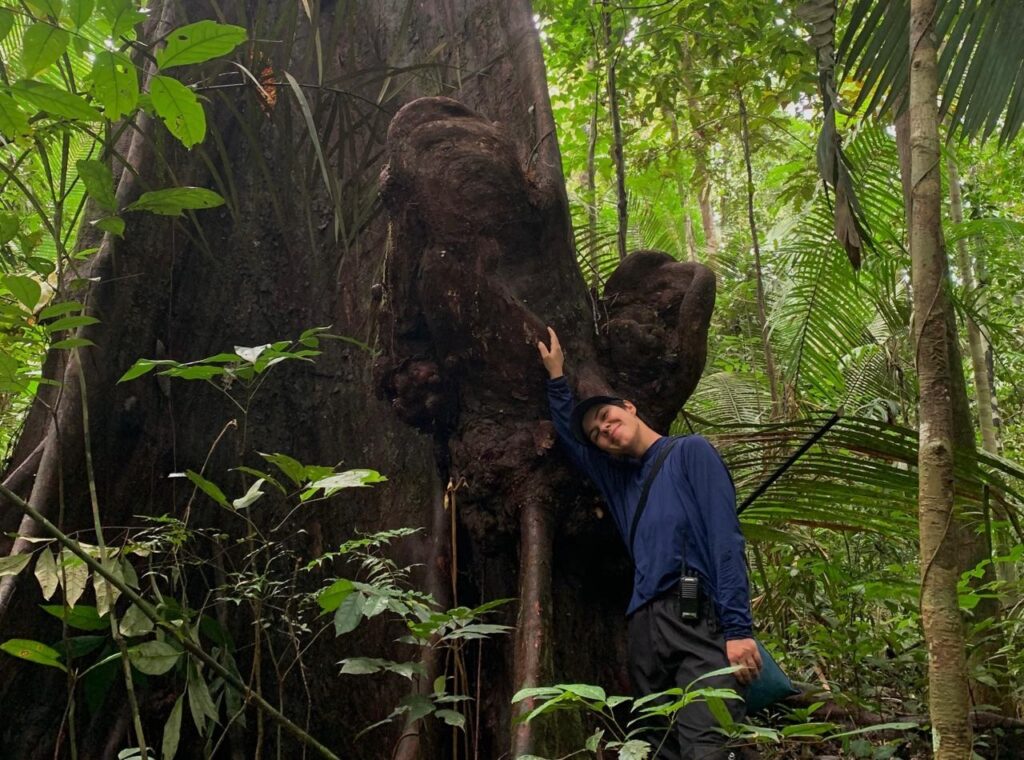
This research investigates the transformation of forest conservation into a digital financial asset through the use of an NFT. The non-fungible token (NFT) analyzed in this study is traded on the Ethereum blockchain and combines the tokenization of Real-World Assets with REDD+ (Reducing Emissions from Deforestation and Forest Degradation) incentives to support the conservation of a forest area in Jacareacanga, located in the southern sector of Pará state. The study examines how the area is monitored on-site through local patrols, satellite imagery, and measurement and verification reports (MRV). It then analyzes how this particular NFT is registered and circulated as a financial asset within the blockchain network. The first stage of the research focuses on ethnographic fieldwork around Jacareacanga to observe how local agents interact with border monitoring and management technologies. The following stage involves ethnographic work tracking financial flows on the blockchain as well as the movements of portfolios and investor communities.
Bruno Guilhermano Fernandes
Paternities, Money, and Houses in the Complexo da Maré
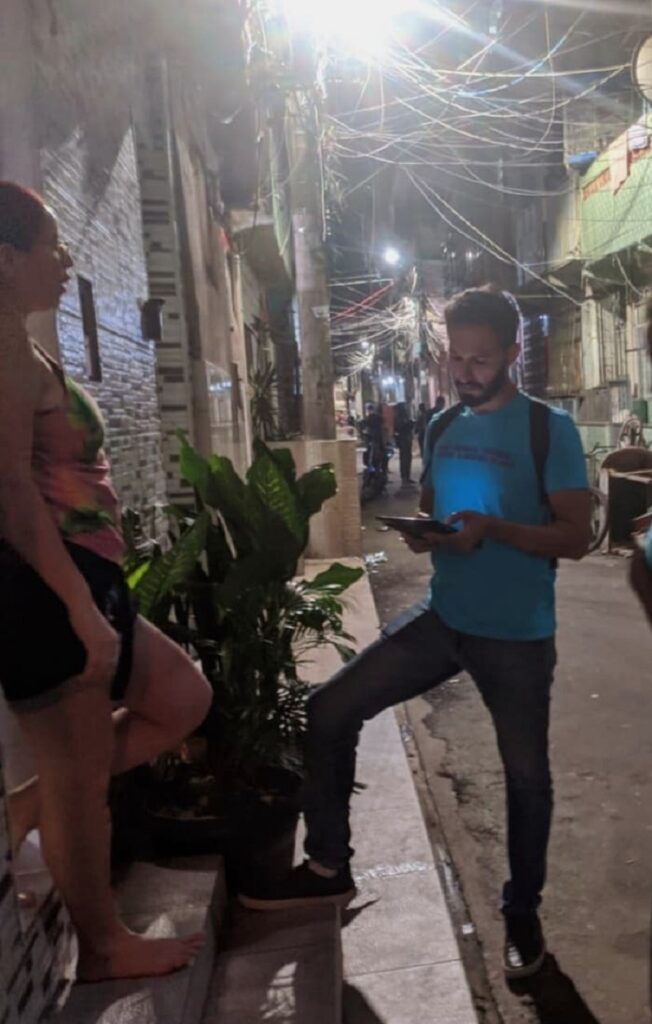
My research is centered on ethnographic fieldwork in a favela located in Complexo da Maré in the northern sector of Rio de Janeiro. It focuses on residents, their families, and neighborhood networks, examining the relationships between paternity, money, and households. The central question of this investigation explores the daily life trajectories of my interlocutors in Maré to analyze how paternal masculine agencies, money, and houses create relational dynamics, practices, and meanings. My proposal seeks to expand on anthropological studies of household and kinship in Brazilian contexts that are most often framed by analyses of gender relations that emphasize women’s roles in managing exchanges, care, and money within favela households. While acknowledging the ethical, political, and scientific significance of these maternal perspectives, I aim to shed light on processes that have received relatively less attention: how families and their household networks relate to paternal money. I conceptualize this money as a relational entity linked to various categories, which will inform an analysis of social repertoires of masculinities and paternal experiences. In investigating the connections between paternity and money, I aim to analyze relational dynamics such as conjugality and parenthood which are central to the constitution of individuals and households.
David Danziger Regenberg
The archives of Custodians of Evacuee Property: practices of expropriation, custody, and distribution of property in the Partition of India (1947)
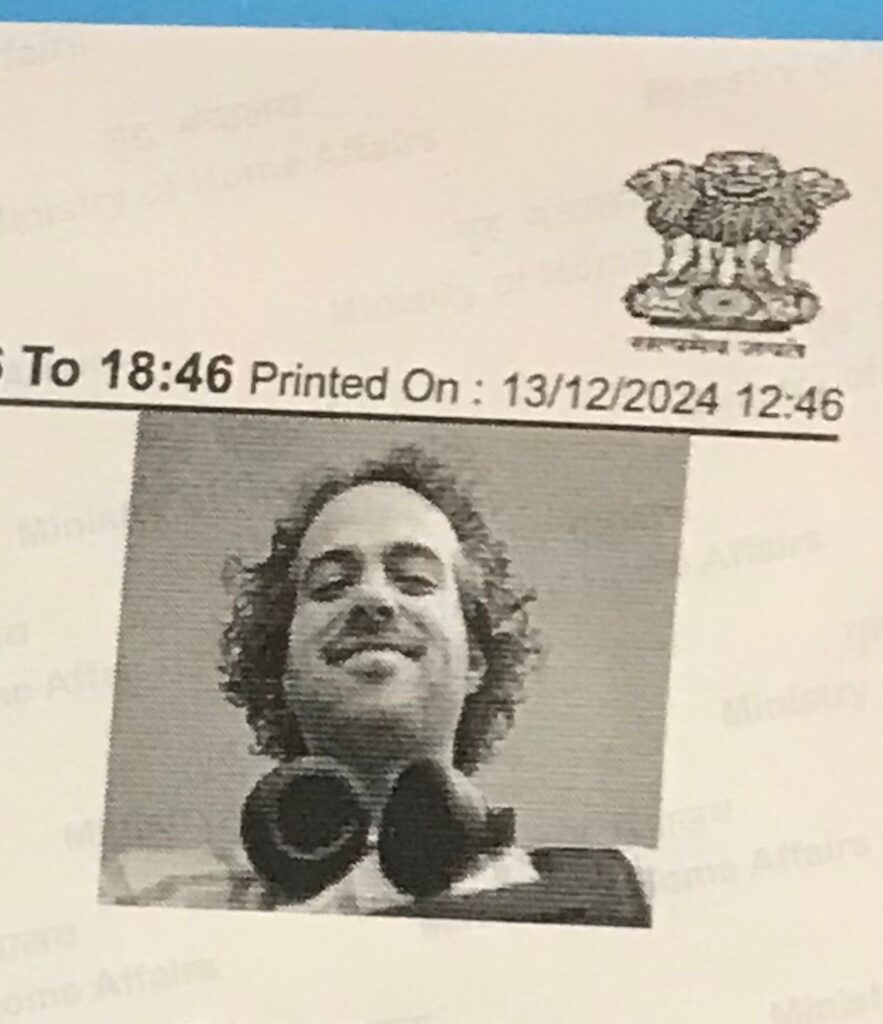
The Partition of India (1947) led to the displacement of millions of people in the newly created states of India and Pakistan. To manage this massive population flow amid profound violence and instability, these states adopted and adapted British legislation concerning the custody and expropriation of property from citizens deemed enemies during World War II. This led to the creation of an institution, the Custodian of Evacuee Property, that had the authority to expropriate, manage, and distribute properties belonging to those categorized as “evacuees.” This framework established a basis for differentiation along national lines between Muslims who became part of Pakistan, and Hindus and Sikhs who became part of India. Against this backdrop, the primary objective of my ethnographic research is to explore how the formation of the Indian national state intersected with the administration of population flows and the materiality of evacuee properties. Specifically, I aim to understand how houses were transformed into government objects and sites of state formation by focusing on documents related to these institutions housed in the National Archives of India. My ethnography aims to examine practices of expropriation, custody, and the distribution of property, to explore the conditions that made these practices possible and the effects of their archival inscription on state formation processes.
Juliane Oliveira Nunes
Water, Race, and the Plantationocene: An Ethnography of Afro-Diasporic Experiences in Cuba
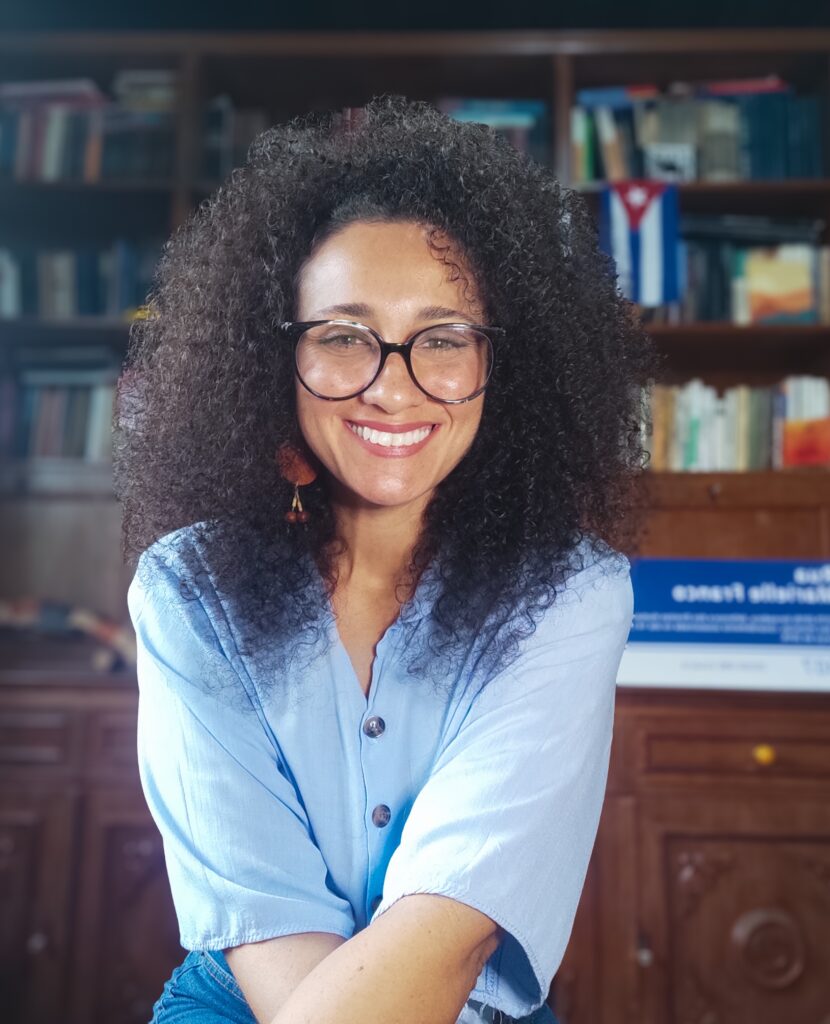
This project aims to investigate the continuities and discontinuities between the uses and meanings of water and the historical processes of plantations in Cuba. I propose to conduct ethnographic research focused on daily life in Calle de los Negros in the city of Perico, where many formerly enslaved individuals settled after abolition. This street is home to a large number of families linked to various African-based religious practices: Ganga Longobá, Palo Monte, Santería, Arará, and Ifá Cubano, among others. For these families, water is essential not only for the management of daily life but also for the performance of rituals, purification baths, offerings for the dead, cleaning up after animal sacrifices and the cultivation of medicinal plants, among other activities. These practices involve different forms of interaction between humans, non-humans, spirits, the deceased, and deities.
To broaden the debate around racialized inequalities in the context of the Plantationocene, this project conceives of water as a “theoretical machine” to address the following questions: How does the history of plantations and slavery impact the socio-environmental issues related to water in Cuba? How do current water conditions (both climatic and infrastructural) in Cuba affect Afro-diasporic families involved in these historical-relational processes? What are the impacts of water scarcity on Afro-diasporic families in Perico? And how do ontological differences affect and generate differentiated water management practices in the daily lives of these families?
Luiz Paulo Garcia Bittencourt
Inventing a New Society: New Political Forms and Social Reform among the Deni of the Xeruã River
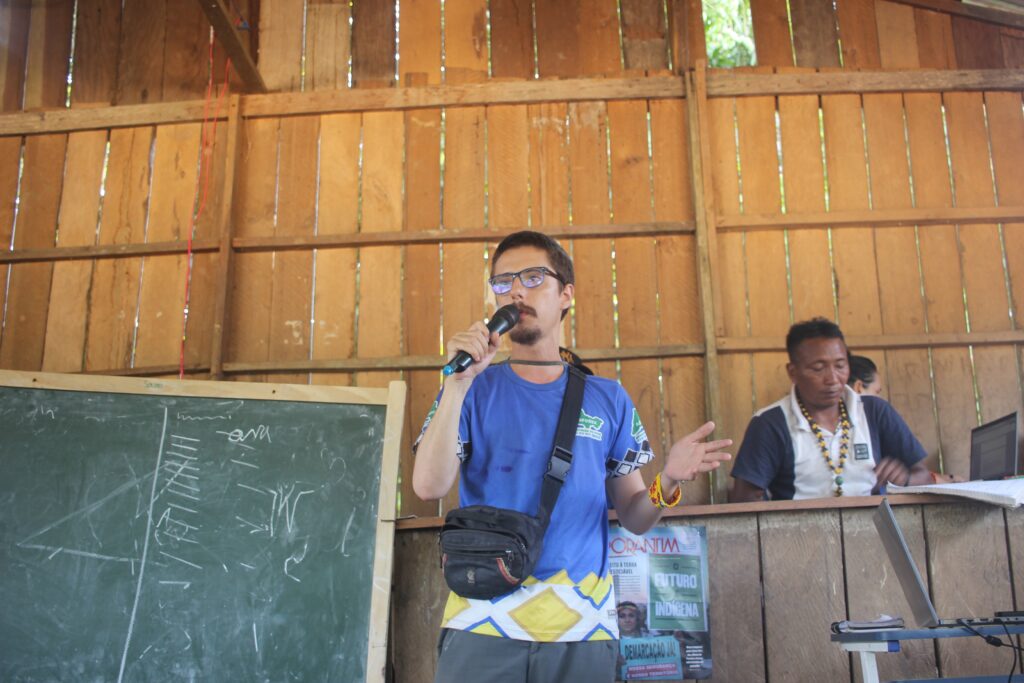
The emergence of new sociopolitical configurations is a critical factor in contemporary global debates. In “global-scapes” “flattened” by colonialism, individuals’ creative capacity to invent new sociopolitical formations in the face of destruction has challenged our anthropological imagination. My research seeks to contribute to these debates by exploring the emergence of new political forms and social reforms among the Deni people of the Xeruã River, an indigenous group occupying the Juruá-Purus interfluvial region in the southwest sector of the Brazilian Amazon. The Deni are the result of a historical processes that brought together diverse endogamous clans with similar languages, formerly bound by war and ritual. Devastated by the expansion of rubber extraction, these groups united together at the same time they entered into a debt slavery relationship with rubber barons. The Deni quickly adopted the term “patarahu” an adaptation of the Portuguese term “patrão” (meaning “boss”), to designate their headmen. With the rubber crisis and the arrival of other non-indigenous people, such as NGO and State agents – who were no longer called “patrões” but “parceiros” (meaning “partners”) – a new type of headman emerged: the “lideranças” (meaning “leaders”). Unlike the patarahu who are elders who possess traditional knowledge, the lideranças are young men with a better understanding of the world of “whites.” I aim to explore how the Deni adapted cultural and political elements borrowed from their oppressors to create new sociopolitical forms amid a devastating colonial crisis.
Maria Isabel Trivilin Pereira
Agro-enchanted: Subjectivities and Affect Involved in Agribusiness Production Chains and the Transformations of a Rural Community
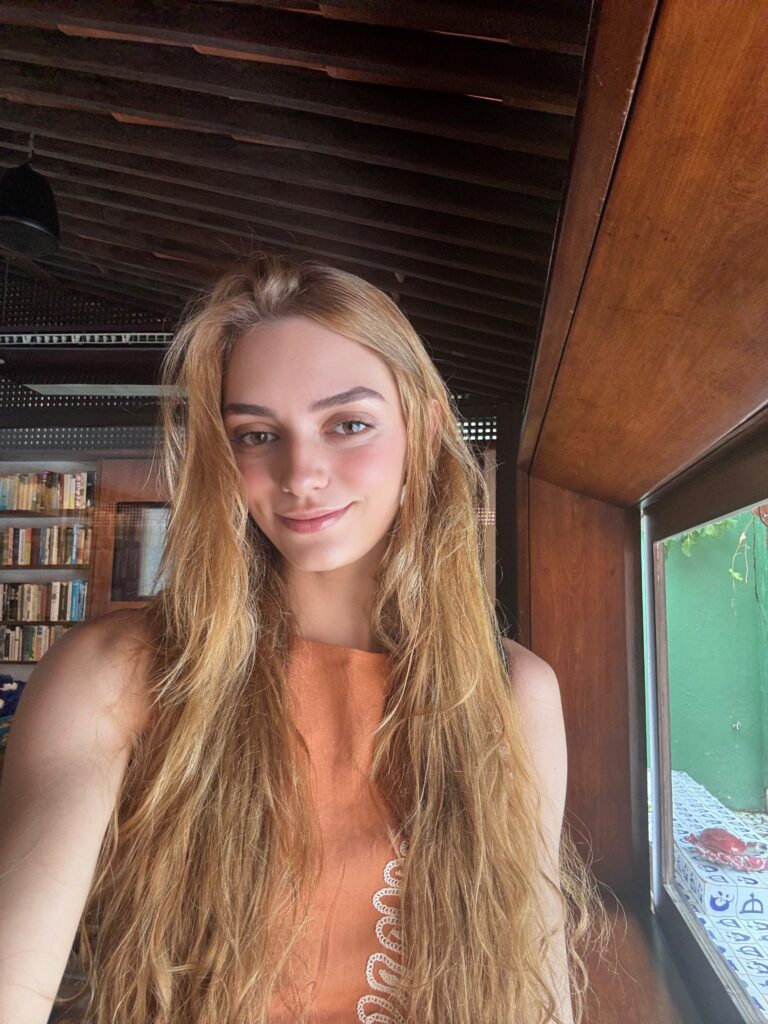
This research explores transformation processes within a community engaged in agribusiness, focusing on modes of subjectivation and affect. The study probes daily routines of industrial poultry workers by observing broiler houses, breeding farms, and genetic hatcheries. It highlights how strict sanitary requirements impact routines, subjectivities, and social interactions. Considerable attention will be paid to workers’ sensory experiences with animals and the bodily implications of subjectivation. In addition, the research will examine the relationship between farmers and the machinery market, including the relocation of local workers engaged in seasonal employment across Brazil. The goal is to map the networks and partnerships between community farmers and external actors who provide services to large landowners. I will also attend agribusiness fairs and agro-industrial exhibitions, such as Show Rural Coopavel, and focus on machinery and animal exhibits to analyze how agribusiness shapes consumer desires and tastes that both reflect a singular aesthetic and a process of uniformity in animals and modes of appreciation. Based on my study of poultry farming and its relationship with agricultural machinery, the research seeks to broaden understanding of the expansion and impact of agribusiness by exploring its symbolic, aesthetic, emotional, and subjective dimensions.
Marília Caetano Rodrigues Morais
Through the Threads of the Bykyrè: Memory Regimes and the Recontextualization of Iny (Karajá) ‘Mats’ in the Ethnology Museums of Berlin and Leipzig
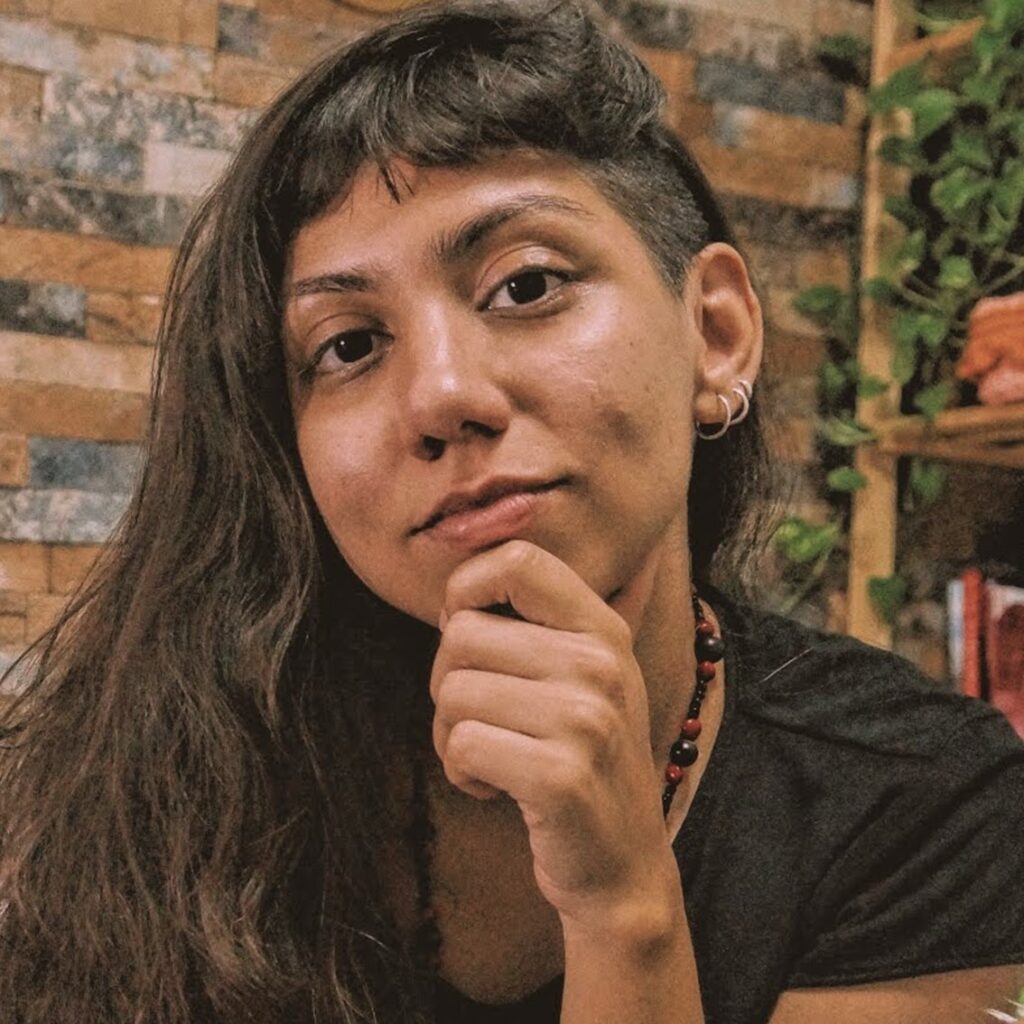
My research aims to investigate the production, circulation, and collection of bykyrè, mats made from buriti palm fibers that are woven by Iny (Karajá) women. These mats play crucial roles in the daily and ritual life of the Iny people and extend beyond typical classification as “utilitarian objects” in ethnological museums. My study examines the relationship between different generations of Iny women who currently weave the bykyrè and their connection to the bykyrè “of the ancients” which are housed in museum collections. The fieldwork will focus on mapping, locating, accessing, and analyzing the oldest known bykyrè in Iny (Karajá) collections held by ethnological museums in Berlin and Leipzig, Germany. The research aims to understand the different “regimes of memory” (Fabian, 2001; Oliveira, 2016; Nawa, 2023), both indigenous and non-indigenous, that are activated through the bykyrè. It will also include an analysis of production techniques, scientific practices, and discourses associated with the bykyrè in collections made by Paul Ehrenreich (1888) and Fritz Krause (1904). Engaging with ethnology, museology, material culture studies, and ethnoarchaeology, this research will inform anthropological scholarship by: contributing to the recontextualization of the bykyrè in the history of anthropology, and challenging hierarchies and inequalities in the relationship between ethnological museums and indigenous peoples.